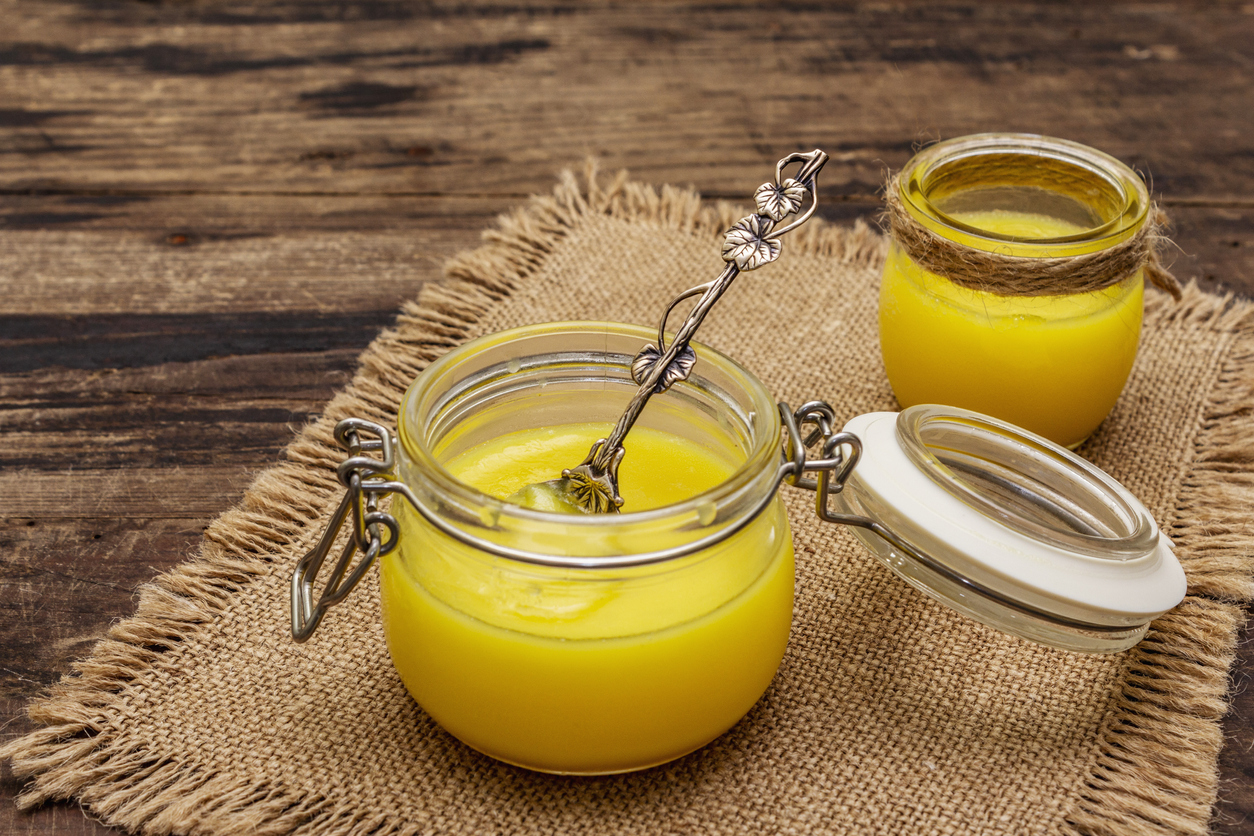Introduction:
Desi ghee, a quintessential ingredient in Indian cuisine, is more than just a cooking medium; it’s a symbol of tradition, flavor, and holistic wellness. Derived from the age-old practice of churning butter, desi ghee holds a significant place in Indian culture and Ayurveda. This article aims to delve into the rich heritage and health benefits of desi ghee, exploring its historical significance, nutritional composition, culinary versatility, and its role in promoting overall well-being.
Historical Significance:
The roots of desi ghee trace back to ancient India, where it was not only cherished as a culinary staple but also revered in religious rituals and medicinal practices. Its mention in sacred texts like the Vedas highlights its significance in Vedic culture. Desi ghee was considered a symbol of purity and prosperity, often used in ceremonies and offerings to the gods. Throughout history, it served as a symbol of wealth and was highly valued in Indian households.
Nutritional Composition:
Desi ghee is a rich source of essential fatty acids, fat-soluble vitamins (A, D, E, and K), and antioxidants. Unlike refined oils, desi ghee contains no trans fats or hydrogenated oils, making it a healthier alternative for cooking. Its high smoke point also makes it ideal for frying and sautéing without the risk of oxidation. Additionally, desi ghee is lactose-free and suitable for individuals with lactose intolerance, making it a versatile option for various dietary needs.
Culinary Versatility:
One of the most appealing aspects of desi ghee is its versatility in cooking. Its nutty aroma and rich flavor enhance the taste of both savory and sweet dishes. From traditional Indian curries and biryanis to decadent desserts like halwa and ladoo, desi ghee adds a distinctive richness and depth of flavor. It is also commonly used in making clarified butter, known as “tadka” in Indian cuisine, which is used as a flavor-enhancing agent in dals and soups.
Health Benefits:
Contrary to popular belief, desi ghee offers several health benefits when consumed in moderation. Its unique fatty acid profile, including omega-3 and omega-9 fatty acids, supports heart health by reducing LDL cholesterol levels and increasing HDL cholesterol levels. The presence of butyric acid in desi ghee aids in improving digestion and strengthening the gut lining, thus promoting gut health. Additionally, the fat-soluble vitamins present in desi ghee play a crucial role in enhancing immune function and supporting overall vitality.
Ayurvedic Perspective:
In Ayurveda, desi ghee is revered as a “sattvic” food, meaning it promotes clarity of mind and a sense of balance in the body. It is believed to pacify the Vata and Pitta doshas while nourishing the tissues and promoting longevity. Ayurvedic texts prescribe desi ghee for its rejuvenating properties, recommending it as a daily dietary supplement for optimal health. Its ability to enhance the absorption of nutrients and promote cellular repair aligns with Ayurvedic principles of holistic wellness.
Modern Research and Studies:
Recent scientific studies have further validated the health benefits of desi ghee, shedding light on its therapeutic properties. Research suggests that the conjugated linoleic acid (CLA) found in desi ghee exhibits anti-cancer properties and may help reduce the risk of certain types of cancers. Moreover, the antioxidants present in desi ghee, such as vitamin E and carotenoids, contribute to its anti-inflammatory and anti-aging effects, protecting cells from oxidative damage.
Cultural Significance:
Beyond its nutritional and medicinal value, desi ghee holds deep cultural significance in Indian society. It is often associated with celebrations, festivals, and rituals, symbolizing warmth, hospitality, and auspiciousness. The act of preparing desi ghee through the traditional method of churning butter fosters a sense of community and familial bonding, preserving cultural heritage for generations to come. Its inclusion in traditional ceremonies like weddings and religious festivals reinforces its role as a symbol of purity and prosperity.
Conclusion:
Desi ghee stands as a testament to India’s rich culinary heritage and holistic approach to wellness. From its ancient roots in Vedic culture to its modern-day resurgence as a superfood, desi ghee continues to captivate hearts and palates around the world. Its nutritional richness, culinary versatility, and cultural significance make it a cherished treasure in Indian households and a symbol of tradition and vitality. Embracing desi ghee not only nourishes the body but also nurtures the soul, fostering a deeper connection to our culinary heritage and holistic well-being.







